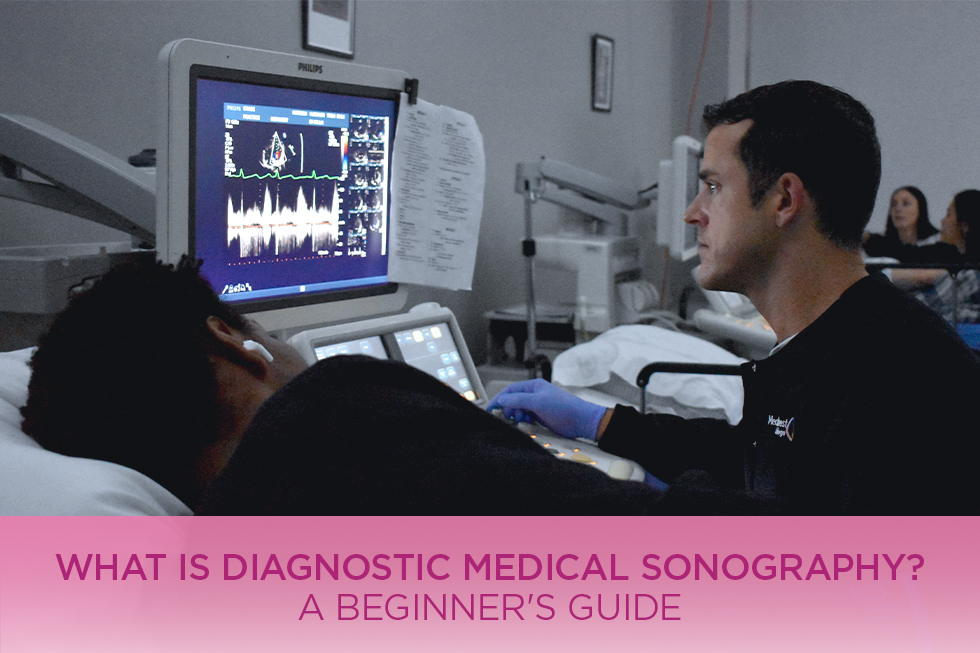Diagnostic Medical Sonography is a fascinating and essential field in modern healthcare, utilizing ultrasound technology to create images of the body’s internal structures. These images assist physicians in diagnosing and treating medical conditions, making sonographers vital members of the healthcare team. This beginner’s guide will explore what Diagnostic Medical Sonography entails, its importance, and how you can start a career in this field.
Understanding Diagnostic Medical Sonography
What is Diagnostic Medical Sonography?
Diagnostic Medical Sonography, also known as ultrasound, is a medical imaging technique that uses high-frequency sound waves to produce images of organs, tissues, and blood flow inside the body. These images help healthcare professionals diagnose and monitor various medical conditions, from pregnancy to heart disease.
Role of a Diagnostic Medical Sonographer
A Diagnostic Medical Sonographer, often referred to as an ultrasound technician, operates ultrasound equipment to capture images of a patient’s internal structures. Their responsibilities include:
– Preparing Patients: Explain the procedure to patients and position them correctly.
– Operating Ultrasound Equipment: Using the equipment to capture images while ensuring patient comfort.
– Analyzing Images: Reviewing images for quality and accuracy before passing them to physicians for diagnosis.
– Maintaining Equipment: Keeping ultrasound machines in good working order and ensuring they meet safety standards.
– Collaborating with Healthcare Teams: Working closely with doctors, nurses, and other healthcare professionals to provide comprehensive patient care.
Importance of Diagnostic Medical Sonography
Non-Invasive Procedure
One of the significant advantages of Diagnostic Medical Sonography is that it is a non-invasive procedure. Unlike surgical methods, ultrasound imaging does not require incisions or the use of radiation, making it safer for patients.
Versatility in Medical Diagnosis
Diagnostic Medical Sonography is used in various medical fields, including:
– Obstetrics and Gynecology: Monitoring pregnancy and diagnosing conditions related to female reproductive organs.
– Cardiology: Evaluating heart function and diagnosing heart conditions.
– Abdominal Imaging: Assessing organs such as the liver, kidneys, and gallbladder.
– Vascular imaging: Assessing the veins and arteries from head to toe
Real-Time Imaging
Ultrasound provides real-time imaging, allowing healthcare providers to observe the movement and function of internal organs and blood flow. This capability is crucial for procedures that require immediate feedback, such as guiding needle biopsies.
Starting Your Career in Diagnostic Medical Sonography
Educational Requirements
To become a Diagnostic Medical Sonographer, you typically need to complete an accredited educational program, which may result in an associate or bachelor’s degree. Coursework often includes anatomy, physiology, math, physics, medical ethics, and hands-on training in sonography techniques.
Certification and Licensure
After completing an educational program, aspiring sonographers must pass a certification exam, such as the American Registry for Diagnostic Medical Sonography (ARDMS) exam, to become certified. Certification demonstrates your knowledge and skills, making you more competitive in the job market.
Job Opportunities and Career Growth
The demand for Diagnostic Medical Sonographers is growing, with opportunities in hospitals, clinics, imaging centers, and private practices. Career growth is also possible, with options to specialize in areas such as musculoskeletal sonography or pediatric sonography, or to advance into supervisory or educational roles.
Diagnostic Medical Sonography is a dynamic and rewarding field that plays a critical role in modern healthcare. With its non-invasive nature, versatility, and real-time imaging capabilities, it offers numerous benefits to both patients and healthcare providers. If you’re interested in pursuing a career in Diagnostic Medical Sonography, MedQuest College offers programs designed to equip you with the skills and knowledge you need. Take the first step towards a career in Sonography by requesting more information.

